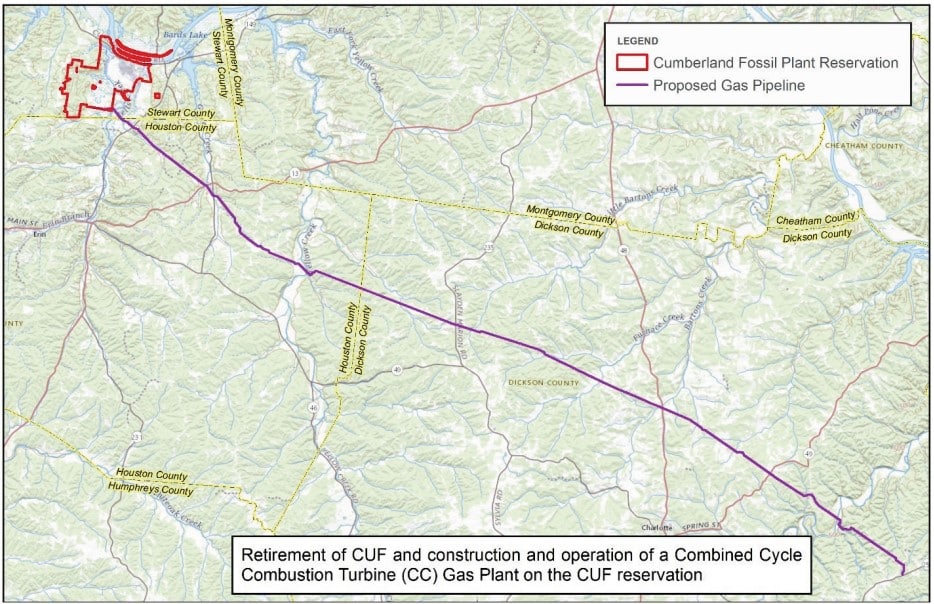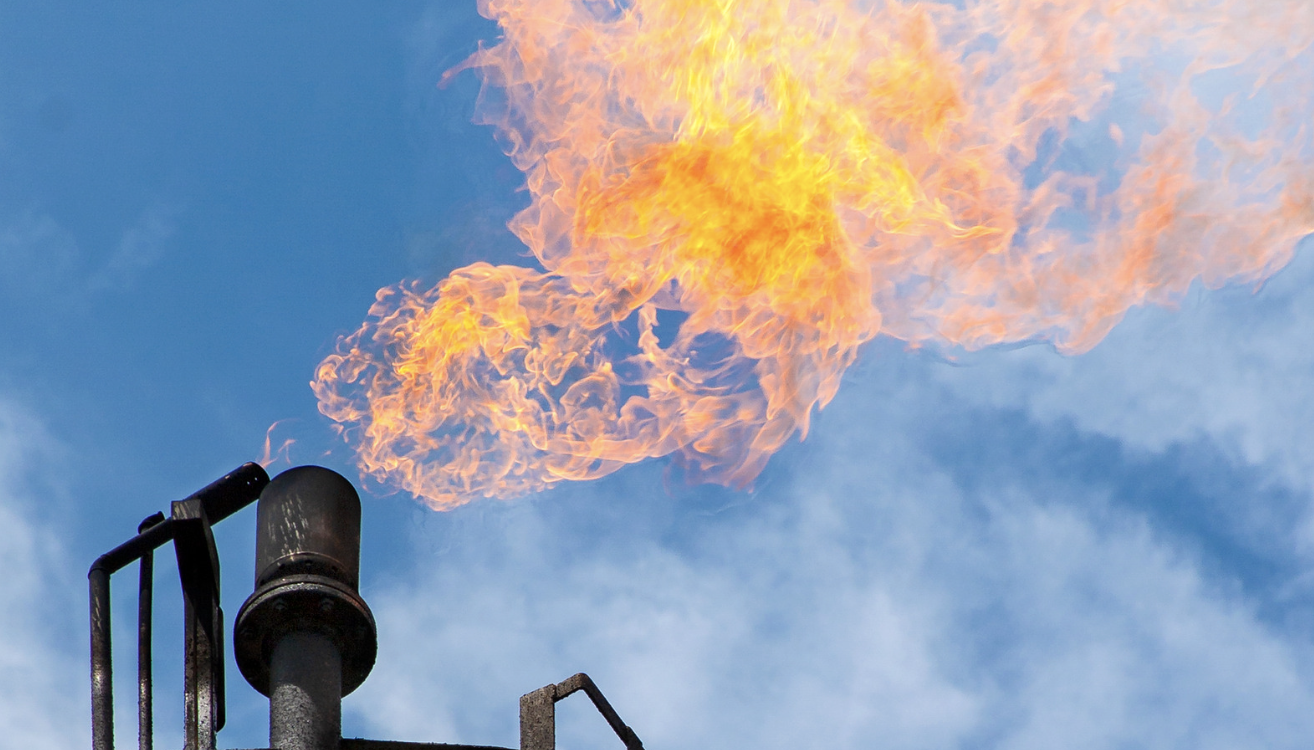On Friday, January 20, 2023, the Tennessee Valley Authority’s CEO, Jeff Lyash published a Record of Decision in the Federal Register: it plans to replace the retiring Cumberland coal plant with a new gas power plant and pipeline in Middle Tennessee.
While this feels very final, let me be clear, this is not the final decision on the proposed new gas plant at Cumberland.
This is not over
In 2021, TVA announced a decision to retire the Cumberland and Kingston coal plants in the 2026-2033 timeframe. The reasons for retirement were mainly high costs to continue to operate the plants and the degraded reliability of the plants themselves. Because TVA is a federal entity, it must go through an environmental review of major decisions, as laid out by the National Environmental Policy Act (NEPA). That means a scoping period, a draft environmental impact statement (EIS), and a final EIS must all be published before a decision can be made.
So for Cumberland, this Record of Decision brings us to the end of TVA’s NEPA process on the power plant. However, that power plant can only operate if a gas pipeline is built to bring gas to the Cumberland site. That pipeline, called the Cumberland Project – proposed by Kinder Morgan – must get approval from the Federal Energy Regulatory Commission (FERC). That approval process is currently ongoing under FERC docket CP22-493. FERC will conduct its own environmental review and a decision on the gas plant is not expected until at least September 2023. We at SACE as well as other environmental and clean energy organizations have intervened in the process to stop the pipeline and Cumberland gas plant.

Additionally, the current TVA Board of Directors has not weighed in on this decision. At its November 2021 meeting, the TVA Board voted to delegate the final decision on how to replace both Cumberland and Kingston to TVA’s unelected CEO, Jeff Lyash. But only three of the nine current members of the Board were on the Board at that time. Many, many things have changed in the electricity sector since November 2021 and those changes warrant this decision is worth another look. In fact, the Southern Environmental Law Center is calling on the TVA Board to put a pause on the project while the organization takes a look at all the factors involved.
Inflation Reduction Act
One major change in the electricity sector since the TVA Board delegated the Cumberland decision authority to the CEO is the passage of the Inflation Reduction Act (IRA). The IRA is particularly impactful to TVA and its customers because it allows tax-exempt entities, like TVA, to take advantage of financial incentives that lower the cost of clean energy resources like solar, storage, wind, and energy efficiency.
While the legislation passed in August of 2022 and TVA released its final EIS in late November, that is still not enough time for TVA to truly evaluate the impacts of all that is in the IRA on this decision. In fact, we are still waiting on guidance from federal agencies like the IRS and the Department of Energy on sections of the IRA that could significantly lower the cost of replacing Cumberland with a combination of clean energy resources. As just one example, the IRS is expected to release guidance soon on how higher financial incentives could be achieved if projects are located in or near an energy community, defined as parts of the country that fueled progress through coal mines or coal power plants.
TVA has a plethora of coal communities that could serve to benefit from the economic development a clean energy project would bring. It is certainly worth taking a little extra time to do due diligence before deciding on a generation project that will have a much smaller economic development footprint than clean energy and will continue to pollute a community that has already been burdened with pollution from the Cumberland coal plant.
Additionally, since cost is the main reason TVA claims it is going with gas over clean energy such as solar, storage, and energy efficiency, and the IRA changes the costs of clean so wholly, it is only logical that the Board reconsider its pre-approval of whatever Jeff Lyash decided before this impactful legislation was passed.
December 2022 Blackouts
The IRA by itself is enough of a reason for reconsideration, but we were given another glaring reason in late December when extreme weather led TVA to impose rolling blackouts on its customers for on two consecutive days. From the little we know about the cause of the blackouts, it’s clear a main driver of them were failures at multiple fossil power plants, including TVA’s John Sevier gas combined cycle. This plant is smaller than the one TVA has proposed at Cumberland, but otherwise very similar, and only ten years old. In fact, just a year ago TVA had the John Sevier plant on the longest outage to date to “make sure it provides reliable power this winter and for years to come,” as part of a “cold weather reliability commitment.” If another reason TVA is choosing gas over clean resources is reliability, and yet a similar plant TVA already has in service can’t be relied upon when it’s needed, that argument falls apart very quickly.
If TVA had robust energy efficiency and demand response programs – particularly helping weatherize homes and installing efficient HVAC systems – as well as more solar and storage on its grid, it may have been able to keep the lights on through Christmas Eve 2022.
We continue to strive for clean energy in the Tennessee Valley
TVA’s completion of its internal NEPA process for the Cumberland replacement decision is a blow to the hopes of many that a low-cost clean energy replacement for Cumberland would come swiftly and continues to be out of step with the stated decarbonization priorities of the Biden Administration. However, leverage over whether this gas plant ultimately gets built still remains, and we are in much earlier stages in the process of how TVA will replace the Kingston coal plant. As I’ve stated previously, the best route for deciding these and other major generation retirement and addition decisions is through an Integrated Resource Plan (IRP). TVA is required to get Board approval of its next IRP by late 2024, so it must start that process soon. It is imperative that the IRP evaluate alternatives to the two gas plants at Cumberland and Kingston.



